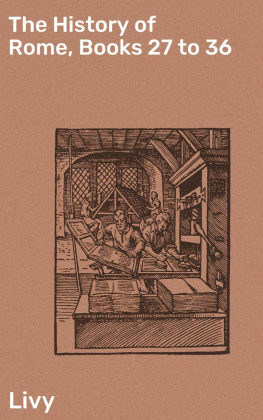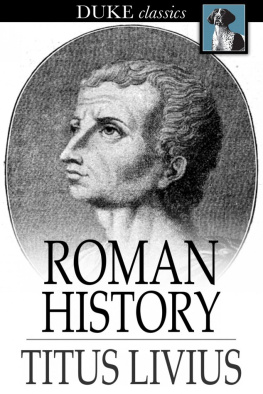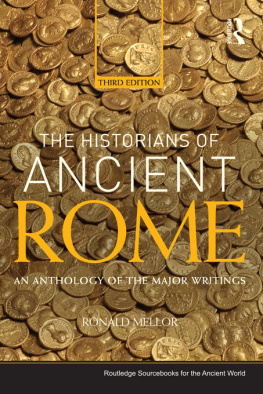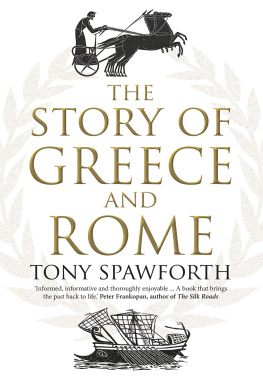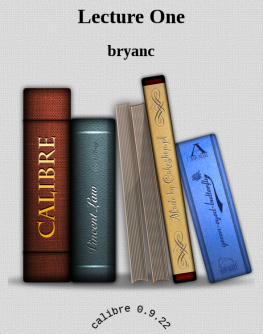
Great Clarendon Street, Oxford OX2 6DP
Oxford University Press is a department of the University of Oxford.
It furthers the Universitys objective of excellence in research, scholarship,
and education by publishing worldwide in
Oxford New York
Athens Auckland Bangkok Bogot Buenos Aires Calcutta
Cape Town Chennai Dar es Salaam Delhi Florence Hong Kong Istanbul
Karachi Kuala Lumpur Madrid Melbourne Mexico City Mumbai
Nairobi Paris So Paulo Singapore Taipei Tokyo Toronto Warsaw
with associated companies in Berlin Ibadan
Oxford is a registered trade mark of Oxford University Press in
the UK and in certain other countries
Published in the United States
by Oxford University Press Inc., New York
Translation J. C. Yardley 2000
Introduction, Notes, and other editorial matter Waldemar Heckel 2000
The moral rights of the author have been asserted
Database right Oxford University Press (maker)
First published as an Oxford Worlds Classics paperback 2000
All rights reserved. No part of this publication may be reproduced, stored in a retrieval system, or transmitted, in any form or by any means, without the prior permission in writing of Oxford University Press, or as expressly permitted by law, or under terms agreed with the appropriate reprographics rights organizations. Enquiries concerning reproduction outside the scope of the above should be sent to the Rights Department, Oxford University Press, at the address above
You must not circulate this book in any other binding or cover
and you must impose this same condition on any acquirer
British Library Cataloguing in Publication Data
Data available
Library of Congress Cataloging in Publication Data
Data available
ISBN 019283293X
13579 10 8642
Typeset in Ehrhardt
by RefineCatch Limited, Bungay, Suffolk
Printed in Great Britain by
Cox and Wyman Ltd., Reading
OXFORD WORLDS CLASSICS
For over 100 years Oxford Worlds Classics have brought readers closer to the worlds great literature. Now with over 700 titlesfrom the 4,000-year-old myths of Mesopotamia to the twentieth centurys greatest novelsthe series makes available lesser-known as well as celebrated writing.
The pocket-sized hardbacks of the early years contained introductions by Virginia Woolf, T. S. Eliot, Graham Greene, and other literary figures which enriched the experience of reading. Today the series is recognized for its fine scholarship and reliability in texts that span world literature, drama and poetry, religion, philosophy, and politics. Each edition includes perceptive commentary and essential background information to meet the changing needs of readers.
Refer to to navigate through the material in this Oxford Worlds Classics ebook. Use the asterisks (*) throughout the text to access the hyperlinked Explanatory Notes.
OXFORD WORLDS CLASSICS

LIVY
The Dawn of the Roman Empire
Books Thirty-One to Forty

Translated by
J. C. YARDLEY
With an Introduction and Notes by
WALDEMAR HECKEL

OXFORD WORLDS CLASSICS
THE DAWN OF THE ROMAN EMPIRE
BOOKS THIRTY-ONE TO FORTY
TITUS LIVIUS (LIVY), the historian, was born in Patavium (modern Padua) in 64 or 59 BC and died in AD 17 in Patavium, surviving therefore into his late seventies or early eighties. He came to Rome in the 30s BC and began writing his history of Rome by the end of that decade. There is no evidence that he was a senator or held other governmental posts, although he was acquainted with the emperor Augustus and his family, at least by his later years. He appears to have had the means to spend his life largely in writing his huge history of Rome, Ab Urbe Condita or From the Founding of the City, which filled 142 books and covered the period from Romes founding to the death of the elder Drusus (7539 BC). Thirty-five books survive: 110 (753293 BC) and 2145 (218167 BC).
J. C. YARDLEY was educated at the (former) Cowbridge Grammar School, South Wales, and the universities of St Andrews and Oxford. He has also translated Quintus Curtius History of Alexander for Penguin Classics (1984) and Justin for the American Philological Association Classical Resources series (1994) and (Books 1112) for Oxford University Presss Clarendon Ancient History series (1997). He is a former President of the Classical Association of Canada
WALDEMAR HECKEL was born in Knigshofen i. Gr., Germany, and educated in Canada, where he received his Ph.D. at the University of British Columbia. He is Professor of Ancient History at the University of Calgary and author of The Last Days and Testament of Alexander the Great (Stuttgart, 1988) and The Marshals of Alexanders Empire (London, 1992). He annotated J. C. Yardleys translations of Quintus Curtius for Penguin Classics (1984) and Justins Books 1112 (on Alexander the Great) for the Clarendon Ancient History series.
CONTENTS
INTRODUCTION
Livys Life and Work
Titus Livius, one of Romes greatest historians,
As Livy reached maturity, the series of civil wars, initiated by Caesars crossing of the Rubicon in 49, made conditions unfavourable for a young man wishing to continue his education either in Rome or in Greece. For a sojourn in the latter there is no explicit evidence, and it is significant that Livy nowhere demonstrates first-hand knowledge of Greek geography. Nor is it certain when he came to Rome, though it is probably safe to assume that he arrived during the 30s or, at the latest, before 27 BC. Before he turned to the daunting task of composing his History, Livy composed dialogues of a philosophical and historical nature.
where a tomb inscription dated to the Augustan period commemorates him.
Ab Urbe Condita
The work was immense, recounting in 142 books Romes history from the foundation (hence the title Ab Urbe Condita, From the Founding of the City) to his own time, a period of about 770 years. For his readers, the process of excerpting began almost immediately. Such was the activity that preoccupied the younger extant volumes):
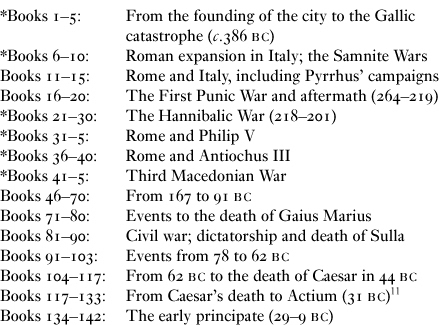
The basic structural unit of the work is the pentad (or set of five books), though these combined to form decades, or even pentekaidecades, of related material. Occasionally, a division was emphasized by a preface (Books 1, 6, 21, 31), but not all pentads had their own prefaces (see Books 26, 36, 41), nor were the latter restricted to the beginnings of pentads (Book 2). The surviving prefaces introduce the regal period, the establishment of the republic, Roman recovery after the Gallic disaster, the Hannibalic war, and the conflict with the Hellenistic East. From Book 91 onwards the division into pentads and decades is less obvious, leading some to suppose that the practice was abandoned. And, although the placement of the prefaces suggests an awareness of historical eras, this does not make the task of schematizing Livys work any easier, since modern perceptions of late republican eras are doubtless different from those recognized by the Romans themselves.
Next page

